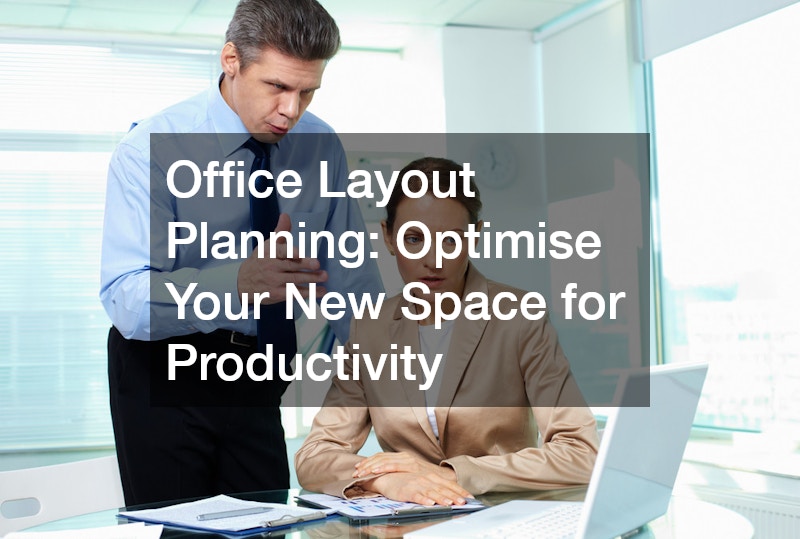Moving a business is a difficult task that can cause disruptions and logistical problems. With the right planning and strategies, you can make your move cost-effective and smooth. This guide offers frugal, efficient tips to help you with your business relocation. It will ensure minimal downtime while maximising efficiency.
Create a Comprehensive Plan for a Seamless Move
A detailed plan is the first step to a successful business relocation. This plan should include every aspect of your move, including the budget and timeline. It also includes the tasks you need to complete. A clear plan can help you to stay organised and make sure that nothing gets overlooked.
Set a realistic moving date. Take into account factors like the expiration date of the lease at your current location, availability of the new space and any renovations or customisations that may be required. Assign a manager to supervise the process of relocation and make sure that everything is completed on time.
Budgeting Smartly: How to Keep Costs Under Control

Moving a business is expensive. However, if you budget carefully, you can manage the costs. Compare the services and prices of different moving companies. Local moving companies are usually more affordable and know the area well.
Include in your budget all possible expenses, including packing materials, transportation fees, and any costs associated with installing utilities or internet. Set aside money for any unexpected costs that might arise during your move.
Downsize and Declutter: Cut Costs and Simplify Your Move
Take the time to organise and declutter your office before you begin packing. Examine your inventory to determine which items are necessary and what can be donated or thrown away. By reducing the number of items you have to move, you will save money on your move.
Sell or donate old equipment, furniture and supplies you no longer need. You can raise money for your move by selling or donating old furniture, equipment and supplies. This will make the process of moving easier. Decluttering your office can also make it more efficient and organised.
Pack with Purpose: Save Time and Money on Packing
The packing process is an important part of moving. Doing it correctly can save time and money. Gather packing supplies like boxes, bubble wrap and packing tape. Label each box with the contents and room in which it belongs.
Use custom shipping crates to protect fragile or valuable items. These crates offer extra protection and can prevent damage in transit. Save money by using boxes and packing material from previous shipments, or ask local businesses to give you their extra boxes.
Consider Moving Containers for a Flexible Solution
Moving container companies provide a flexible and cost-effective solution for businesses’ relocations. The containers can be brought to you at your current location so that you can pack them at your own pace. Once the containers have been packed, they are delivered to your new office, where you can unpack them at your leisure.
You can use moving containers for temporary storage during your transition. These containers are a convenient and secure way to store items until you have your new office ready. Moving containers reduce the need for moving trucks and can save you money.
When to Hire Professional Movers for Efficiency and Ease
It may seem easier to move on your own, but hiring professional movers will save you time and effort. They can also help avoid headaches. Moving companies are equipped with the necessary equipment and experience to move businesses efficiently.
Look for a company that specialises commercial moves when choosing a moving service. These companies are familiar with the challenges that come along with moving a business, and they can tailor their services to your specific needs. Check reviews and request references to make sure you are hiring a reputable business.
Navigating Special Relocation Needs for Auto Detailing Businesses
Moving can be a challenge for auto detailers. It is important to ensure that all equipment and supplies will be transported safely and installed correctly in the new location. Hire movers with experience in auto detailing.
Inform your customers about the relocation well in advance, and let them know when you expect to resume services. This will ensure that your customers remain loyal and minimise disruptions in business operations.
Don’t Overlook Utility Transfers: Ensure a Smooth Transition
Transferring utilities and services from the old location to the new one is an aspect that’s often overlooked when relocating a business. Included are electricity, water and internet services. You should contact your service providers in advance to arrange the transfer of services or their installation at your new office.
Remember to update all parties involved, such as clients, suppliers, and financial institutions, with your new address. This will help ensure a smooth transition and avoid any interruptions in your business operations.
Coordinate with Land Clearing Services for Site Prep
Coordinate with a reliable land clearing service if your new location needs land clearing, or any other site preparation. These professionals will help you prepare the site before construction or renovation so that your new office is ready to be occupied.
Schedule land clearing services in advance to avoid delays to your relocation schedule. It is important to hire experienced contractors who can complete the work efficiently and on budget.
Office Layout Planning: Optimise Your New Space for Productivity

After you have moved all your items into the new office it is time to organise and set up the space. To ensure an efficient and functional workspace, plan the layout of your office in advance. When designing your office layout, consider the needs of employees and the nature your business.
Arrange furniture, equipment and other items in a manner that maximises productivity while minimising clutter. Before employees begin working in the new workplace, ensure that all utilities and services have been installed and are functioning correctly.
Specialised Services: Hiring the Right Experts for Demolition and HVAC
You may need specialised services during a relocation. If you want to repair or install commercial HVAC systems, it is best to hire commercial HVAC services. These professionals can ensure that your heating and air conditioning systems are installed correctly and work efficiently.
If your new office needs demolition work, you should hire a demolition contractor who is experienced to do the job efficiently and safely. Professional contractors are equipped with the right equipment and have the expertise to perform demolition work without damaging the surrounding structures.
Addressing Plumbing Issues Before You Move In
Drain clogs, for example, can be a major disruption to your business. Have the plumbing system checked and addressed before moving into a new office. Check for leaks, drain clogs and other plumbing issues.
A professional plumber can conduct an inspection to prevent plumbing problems that may affect your business. Assuring the plumbing system works properly will allow for a smooth transition.
Boost Security with Comprehensive Office Protection
When moving your business, security is of paramount importance. Installing locks, alarm systems, and security cameras in your new office will help to make it more secure. You can have peace of mind by hiring a professional locksmith to install additional security measures and change locks.
Inform your employees of the security protocol and make sure they know how to safely access the new office. Store sensitive documents and valuable items in a secure location to avoid theft.
Update Marketing Materials and Online Presence to Reflect Your Move
Your business’s address should be updated on all marketing material, such as business cards, brochures and your website. To avoid confusion, make sure that your website reflects the new address.
You can inform your clients and business partners of the change by sending out email newsletters or posting updates on social media. It is important to provide clear, consistent information regarding your new business address and any other changes you may be making. This will maintain your customer’s trust and loyalty.
Consider Custom Shipping Crates for Added Protection
Custom shipping crates are a must if your business involves the shipping of products. These crates offer additional protection to your products during transit and reduce the risk of damage. Shipping crates are custom-made to fit specific products and ensure that they reach their destination safely.
Working with a reputable supplier, you can design and create custom shipping crates to meet your specific needs. By preventing damage to products and product returns, investing in high-quality shipping crates will save you money over time.
Ensure a Smooth Transition for Employees
Your employees are crucial to the success of a business relocation. Assist them in a smooth transition by communicating clearly and providing support. Inform your employees well in advance about the move and give them regular updates on the timeline.
Consider providing relocation assistance. This could include covering moving costs or providing temporary accommodation if necessary. Supporting employees through the relocation process can maintain productivity and morale, which will ensure a smooth transition.
Conduct a Final Walkthrough to Confirm Everything’s Set
Conduct a final walkthrough before moving into your new office. This will ensure that all is well. Verify that utilities and services work properly, and that your office is clean and ready to occupy. Avoid any disruptions in your business by addressing any issues that might have occurred during the move.
It is a great way to make sure that everything has been done and that your new office will meet all of your expectations. This allows you to make last-minute changes before your employees begin working in the new office.
Eco-Friendly Relocation: Minimising Your Business’s Environmental Impact
The relocation of a business may have an impact on the environment. Use eco-friendly packaging materials, recycle unwanted items and choose energy-efficient equipment to reduce this impact.
Choose moving companies that prioritise sustainability and fuel-efficient vehicles. Green practices can help you reduce your carbon footprint during relocation and improve your company’s image.
Post-Move Evaluation: Reflect and Refine for Future Moves
Conduct a post-move assessment to determine the success of your relocation. Collect feedback from your employees and determine any areas that need improvement. This can help you to learn from your mistakes and make future decisions more cost-effective and efficient.
Celebrate your team’s hard work and dedication by celebrating the move. Positive post-move environments can boost morale and help set up a productive future for your new office.
Enhance Your Office Environment for Employee Comfort and Productivity
If you are moving to a different location, it is a great opportunity to improve your office’s environment. Make the office more comfortable to encourage productivity. Consider ergonomic furniture, better lighting, and creating areas for relaxation and collaboration.
Investing in the office environment will lead to happier and more productive staff. An attractive office can impress your clients and business partners.
Leverage Technology for a Streamlined Relocation Process
The use of technology can be a key factor in ensuring that a business relocation goes smoothly. Project management software can help you keep track of deadlines and responsibilities. Cloud storage can make sure that documents and data are available from anywhere. This minimises disruptions when moving.
Hold virtual meetings to keep everyone updated and on the same page during the relocation process. Using technology to its fullest can help streamline your move and keep you organised.
Engage Employees in the Relocation Process for a Positive Transition
Participating your employees in the process of relocation can make it easier for them to adjust. To gather feedback and address concerns, create a relocation committee that includes representatives from various departments. This will help to ensure that all employees are satisfied with the new office.
Offer employees the opportunity to visit their new workplace before moving. It can be a great way to familiarise them with the new space and ease any fears they may have about the move. Employee involvement can result in better results and a positive relocation experience.
Maintain Clear Communication with Clients During the Move
It is important to maintain clear communication with customers during the move. Let them know about the relocation well in advance, and keep them updated on any service changes. This will help to maintain customer loyalty, and avoid any confusion or disruptions.
Offer special discounts or promotions to customers during this period. It can keep customers engaged and show them appreciation for their patience.
Utilise Temporary Workspaces for a Smooth Interim Period
Consider using temporary workspaces if your new office will not be ready by the moving date. You can find temporary solutions for your business by renting short-term offices or co-working spaces. This will help to ensure continuity and reduce downtime.
Make sure that your employees are equipped with the tools and resources they need to be productive in the temporary workspace. To manage this transition successfully, clear communication and organisation is key.
Invest in Employee Training for a Faster Transition
Your employees will benefit from investing in their training and development when you relocate your business. Consider holding workshops or training sessions to introduce new processes, tools or skills that can improve productivity at the new office.
Supporting the professional development of your employees can result in a more motivated and skilled workforce. This can help them adjust more quickly to a new environment, and changes in the workflow or responsibilities.
Network with Local Businesses to Integrate into the New Area
Moving to a new location is a great opportunity to meet local business owners. Join chambers of business or local associations to explore partnerships and build relationships.
You can attract new clients and integrate yourself into the local business community by networking. You can gain valuable insight and support when you are establishing your new business.
Plan Ahead for Future Growth and Expansion
It’s important to take into account future growth when relocating your company. Select a location or office space that will accommodate your business’ expansion plans. You can avoid the expense and hassle of moving again in the future.
If the location is a new one, consider the growth potential of the local market. Plan for the future to ensure your business’s long-term success in the new location.
Have a Contingency Plan in Place for Unexpected Challenges
Even with careful planning, unexpected problems can occur during a relocation. Create a contingency to deal with potential issues such as delays, damaged gear, or unexpected expenses.
A contingency plan can help you to respond quickly and efficiently to any problems that may arise. This will help minimise disruptions to your business and keep it running smoothly.
In Summary
A business relocation is a complex process that requires planning, budgeting and execution. Follow these tips to ensure a smooth move with minimal interruptions. Each step is crucial to the success of your move, from hiring professional moving services and addressing specific needs like auto detailing challenges or custom shipping crates.
Don’t forget your employees, and update all your marketing materials to reflect the new location. You can manage your business relocation cost-effectively and efficiently with the right strategies.
Consider factors like technology, employee engagement, customer communication, and environmental impact to ensure that your relocation is successful and sets you up for future success. Use these tips to ensure that your business relocation is a positive and seamless experience for all involved.
